
Budokan: The Martial Spirit is a DOS fighting masterpiece published by Electronic Arts, showcasing martial arts disciplines from karate to bo staff combat. The game has a deeply authentic tournament structure, where players train diligently across four dojos before stepping into the ultimate Budokan championship. With atmospheric graphics and immersive sound, Budokan stands alongside Street Fighter II and Mortal Kombat as a timeless classic. Each move demands precision, rewarding strategy and technique over button-mashing. Whether you’re new to martial arts gaming or a seasoned competitor, Budokan: The Martial Spirit offers a unique and challenging description of digital combat.
Budokan: The Martial Spirit remains a pinnacle in the legacy of DOS fighting games, forging an enduring path for fans of martial arts titles. Published by Electronic Arts, this groundbreaking game showcases a vivid portrayal of skilled combatants striving for mastery in their chosen disciplines. Rich in detail and steeped in the timeless pursuit of perfection, Budokan: The Martial Spirit demands an understanding of patience, focus, and discipline. The game posseses a unique combination of realism and strategic depth, layering each fight with an authentic sense of challenge. Upon its release, martial arts enthusiasts discovered not just an arcade-style experience, but a methodical journey that draws on multiple facets of skill, timing, and cinematic flair.
Part of Budokan: The Martial Spirit’s charm lies in the carefully crafted atmosphere that lingers over the training halls and tournament arenas. From the first moment you step onto the tatami mats, you sense that success here hinges on dedication. Each martial arts style has been meticulously represented, ensuring that the game’s multifaceted approach resonates with players seeking genuine progression. The publisher, Electronic Arts, entrusted Budokan: The Martial Spirit with an immersive aura, weaving a tapestry of tense duels and introspective training montages into a single, unforgettable DOS fighting title.
Where many fighting games leap directly into the ring, Budokan: The Martial Spirit paves the way for a deeper engagement. The core pillars of the game are: measured practice, immersive progression, and a story of quiet ambition. Before tasting true competition, players devote themselves to training in four distinct dojos, each dedicated to a unique martial arts style. Whether mastering bo staff techniques or refining your karate strike, the game invests you in a methodical grind that rewards the virtue of patience.
This structure forms the essence of Budokan: The Martial Spirit. Stepping into each dojo, you’re greeted by an instructor who tests your reflexes, demonstrates new maneuvers, and pushes you to fine-tune your approach. The ambiance is one of solemn focus, punctuated by the crackle of your chosen weapon or the echo of a perfectly executed punch. While modern fighting games often cater to swift, flashy matchups, Budokan leans into tension, inviting you to hone your mental readiness and interpret your opponent’s next move. A hallmark of DOS-era design, the game demands concentrated effort to succeed, revealing an addictive loop of practice and progression.
The storyline, while minimal in overt narrative, resonates with an undercurrent of personal growth. Transitioning from a humble student to a formidable tournament contender, each ring entrance feels like a test of your evolving prowess. The game’s pacing elevates this journey: early training fosters a sense of measured confidence, and by the time you face the ultimate Budokan championship, you realize how essential those repetitive drills were. The developers captured the universal martial arts principle that genuine expertise arises from relentless practice and introspection.
Combat itself springs to life with deliberate pacing and realistic striking sequences, pushing you to anticipate your enemy’s intentions. The cunning design ensures that random button-mashing rarely succeeds. Instead, success demands pinpoint timing and knowledge of each discipline’s strengths. A bo staff might offer impressive range, but mastery requires precise footwork to maintain distance. Conversely, nunchaku require speed and agility, punishing half-hearted attempts at flurries that lack the correct rhythm. Budokan: The Martial Spirit gracefully shifts the player’s mindset from frantic combos to a more elegant dance of movement and countermovement.
Beyond its technique-focused gameplay, Budokan wields an aesthetic that resonates through moody backdrops, atmospheric music, and lingering glimpses of timeless martial arts culture. The game invests you in each face-off; the hush before your final match, the snap of your uniform as you execute a perfect roundhouse kick, and the triumphant swell of victory. Even decades after its original release, Budokan: The Martial Spirit remains a testament to DOS-era artistry, forging an immersive bond between game design and the introspective nature of martial arts discipline.
You can now play Budokan: The Martial Spirit online, absolutely free, directly in your web browser or on your mobile device without any restrictions. With the help of accessible emulation technology, today’s audience has a chance to rediscover the intricacies of this DOS fighting game wherever they are, transcending the limitations of old hardware. Whether you’re delving back into a nostalgic favorite or trying it for the first time, the ease of browser-based play expands the horizons of the Budokan experience. No longer confined to vintage hardware or rummaging for DOS setups, martial arts aficionados can plunge into the ring with a few simple clicks on both desktop and mobile screens.
The online iteration preserves the tension, subtlety, and crisp detail of the original Budokan: The Martial Spirit release. Basic moves remain delightfully challenging, forcing a deeper relationship with each style. The bo staff crackles with authority, the nunchaku swirl unpredictably, and the tonfa test your grip on close-range maneuvers. Karate, the bare-handed discipline, demands a thorough comprehension of stance transitions and blocking technique. Now easily accessible, these styles reflect the game’s original aspiration to present a thoughtful simulation of martial arts mastery. That sense of real challenge resonates anew, proving that true skill emerges from consistent training no matter the technological era.
Budokan: The Martial Spirit values the intangible qualities that separate casual fans from serious practitioners. In cultivating each discipline, the game shines a spotlight on martial arts fundamentals. Reading your opponent, controlling the dojo space, respecting the intervals of offense and defense—these themes underpin the entire experience. Every training session echoes the idea that mastery emerges from cumulative dedication. Even returning players who remember the game’s original DOS days may find themselves discovering new techniques in the online version.
While the game’s technology stems from an era of simpler graphics and minimal voice acting, Budokan’s visual style uses minimalism to create a resolute sense of place. Sparse dojos and measured color palettes infuse an almost meditative calm, encouraging you to center yourself before each sparring session. And though there is no sweeping storyline to speak of, the underlying narrative rests in your personal progression through the ranks. Each confrontation becomes a test of everything you’ve learned, channeling your training into meticulously timed attacks and artful defense.
Budokan: The Martial Spirit stands apart as a methodical fighting description. While faster-paced fighting games rely on frantic combos or storyline theatrics, Budokan invests in realism. One well-placed strike can tip a match in your favor or cost you a precious round. The focus on stamina and technique imbues every contest with suspense, reminding you that skill supersedes luck. Such deliberate pacing is precisely what keeps Budokan relevant after so many years, as the demands of the game never truly age. The balancing act of discipline, reflexes, and mental fortitude is timeless.
In reintroducing the game to new audiences, online play breathes fresh life into Budokan’s synergy of artistry and strategy. The sense of journey intensifies when opponents from across the globe can watch or replicate your training regimen. Though official online tournaments may not exist as they once might have, the communal spirit of martial arts thrives in every session. Each match stands as proof that skill accumulates from repeated practice, consistent learning, and unwavering focus.
The controls in Budokan: The Martial Spirit reflect a methodical design, urging you to internalize every stance and movement. Key inputs correspond to deliberate strikes, blocks, or special moves. Timing is paramount; flailing at random seldom produces results, especially against advanced AI combatants who can swiftly punish reckless aggression. Martial arts revolve around precision and mental composure, and the game’s controls enhance that concept. Learning the interplay between defense and offense ensures that your path to tournament victory is as much about patience as it is about raw skill.
Ultimately, Budokan: The Martial Spirit remains a gem in the pantheon of DOS fighting titles, championed by Electronic Arts and sustained through unwavering fan admiration. Its dedication to discipline, technique, and the ethos of martial arts resonates across generations of gamers who appreciate the measured beauty of each strike. Modern technology allows anyone to play Budokan: The Martial Spirit online, bridging the gap between nostalgia and a new wave of enthusiasts searching for a deeper, more intentional style of play.
We only use publicly available codes, and the game belongs to its original authors.
Share game
Share game
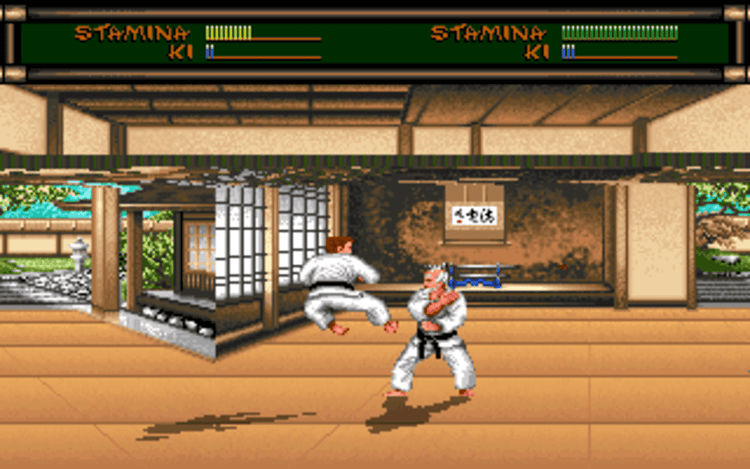
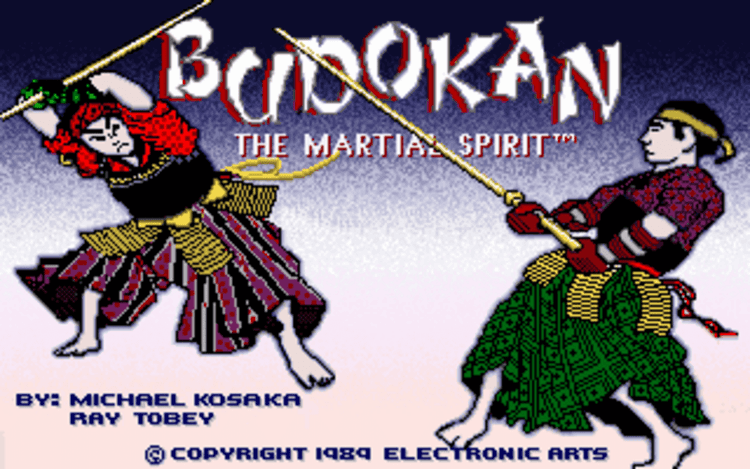
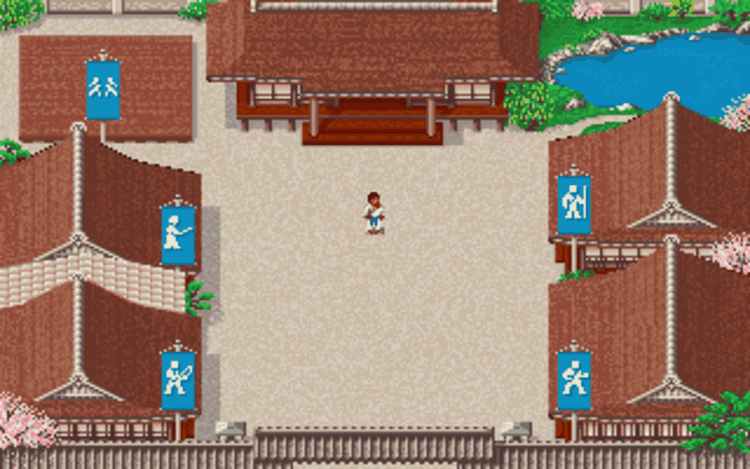
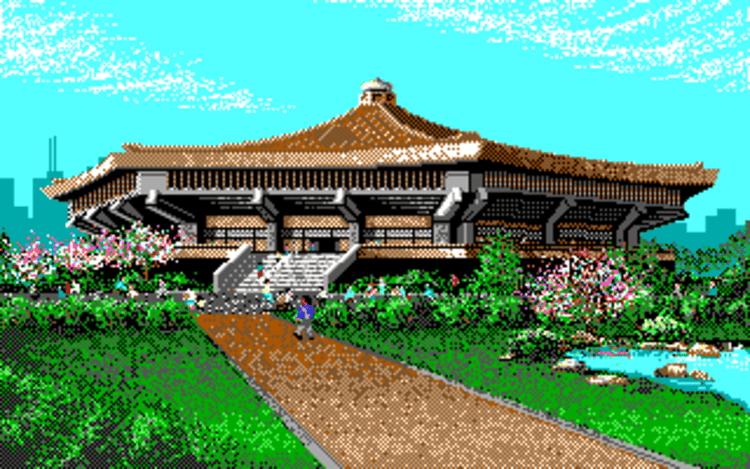
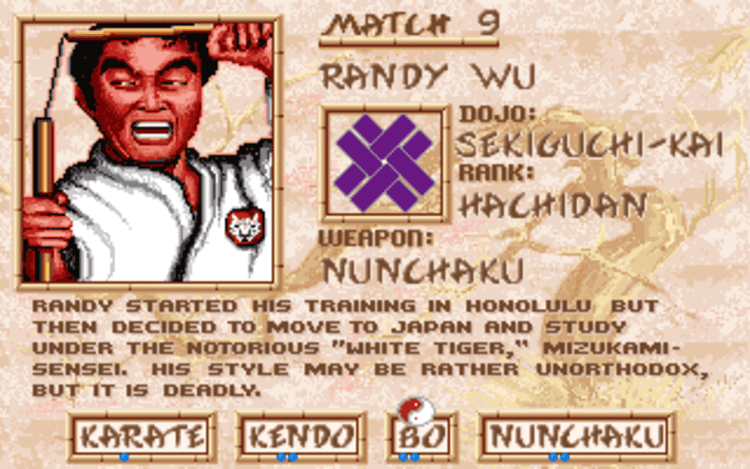



Share game